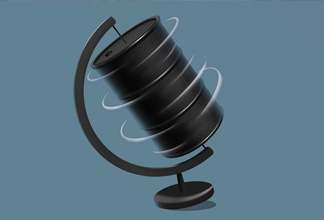Investing Truths: How I Rebuilt My Finances After Losing My High-Profile Job
Written by Rita Silvan
Published on April 8, 2017
minute read
Share:
Building a financial plan used to be pretty cut and dry. The assumption was that most people went through three major life stages: life-build, mid-life and retirement. The first, from about age 20 to the mid-forties, traditionally focused on investing in education, careers, homes, family and a gradual building of savings. The mid-life stage, until age 65, was the time to grow financial assets before retirement, aiming for peak earnings and lower expenses related to mortgages and children's education. The retirement stage, from 65 onward, was for reaping the rewards. Sounds pretty straightforward, right? Not for me.
"The 'typical' life-stage approach to financial planning can be great, until it doesn't match up with your reality."
At the age of 49, and at the peak of my earning power, I lost my job. I held a high-profile position in the fashion-publishing industry and, in Canada especially, those are like finding a designer handbag at a yard sale. In other words, it can happen, but don't count on it. Structural changes in the publishing industry didn't help matters for me. Neither did being on the wrong side of 40. Instead of sailing along on a growing salary, my income went into reverse.
The "typical" life-stage approach to financial planning can be great, until it doesn't match up with your reality. It's more common than ever for 40-somethings to delay saving for retirement due to costs related to caring for young children and aged parents, paying down large mortgages, fewer company-sponsored pension plans and job or career changes.
What's Your Reality?
A mid-life change of plans is becoming more common. According to the 2015 RBC Retirement Myths & Realities Poll, 43 per cent of Canadian retirees didn't end up getting to choose their retirement date, far below the 80 per cent of pre-retirees who believe they'll be able to choose.
Looking back at my "change of plans," there were some things I did right, and a few I could have done better, to get my financial life back on track. Having personal savings and a supportive partner gave me a softer landing than it could have been, which allowed me to focus on what I needed to do next without unduly panicking about the present. (Although panic I did!) Taking freelance work kept my skills sharp and my confidence level above water, while also providing cash flow to slow down withdrawals from my savings. Investing in myself by upgrading my skills helped me pivot my career from fashion publishing to financial communications — building another career that I enjoy. I'd always been committed to lifelong learning, but my career change confirmed how important it can be for both employment and personal development.
My mid-life career change was a great wake-up call investment-wise. Like a lot of Canadians, I didn't pay close attention to my finances, spending and cash flow — until I was forced to do it. Now I set and re-evaluate investment goals, and have the right accounts, investment products and asset mix to help put me at ease. Having a flexible plan would have given me peace of mind when I had a lot of other things in life to deal with. Spending the time to put this in place means that I'm now more prepared to deal with whatever comes my way.
RBC Direct Investing Inc. and Royal Bank of Canada are separate corporate entities which are affiliated. RBC Direct Investing Inc. is a wholly owned subsidiary of Royal Bank of Canada and is a Member of the Investment Industry Regulatory Organization of Canada and the Canadian Investor Protection Fund. Royal Bank of Canada and certain of its issuers are related to RBC Direct Investing Inc. RBC Direct Investing Inc. does not provide investment advice or recommendations regarding the purchase or sale of any securities. Investors are responsible for their own investment decisions. RBC Direct Investing is a business name used by RBC Direct Investing Inc. ® / ™ Trademark(s) of Royal Bank of Canada. RBC and Royal Bank are registered trademarks of Royal Bank of Canada. Used under licence. © Royal Bank of Canada 2018. All rights reserved.
The views and opinions expressed in this publication are those of the writer. This article is for your general interest and does not necessarily reflect the views and opinions of RBC Direct Investing. Furthermore, the products, services and securities referred to in this publication are only available in Canada and other jurisdictions where they may be legally offered for sale. If you are not currently resident of Canada, you should not access the information available on the RBC Direct Investing website.
Explore More

What Investors Can Learn from Hockey Star and RBC Olympian Sarah Nurse
Nurse's path to the podium reveals how preparation, planning and practice can turn potential into a golden opportunity
minute read

Crude Questions? A Look at Canada’s Oil Economy
What you need to know about Canada’s oil industry
minute read

How Inflation-Proof Are Your Investments?
Why inflation still matters – and how to stay ahead of it
minute read
Inspired Investor brings you personal stories, timely information and expert insights to empower your investment decisions. Visit About Us to find out more.







